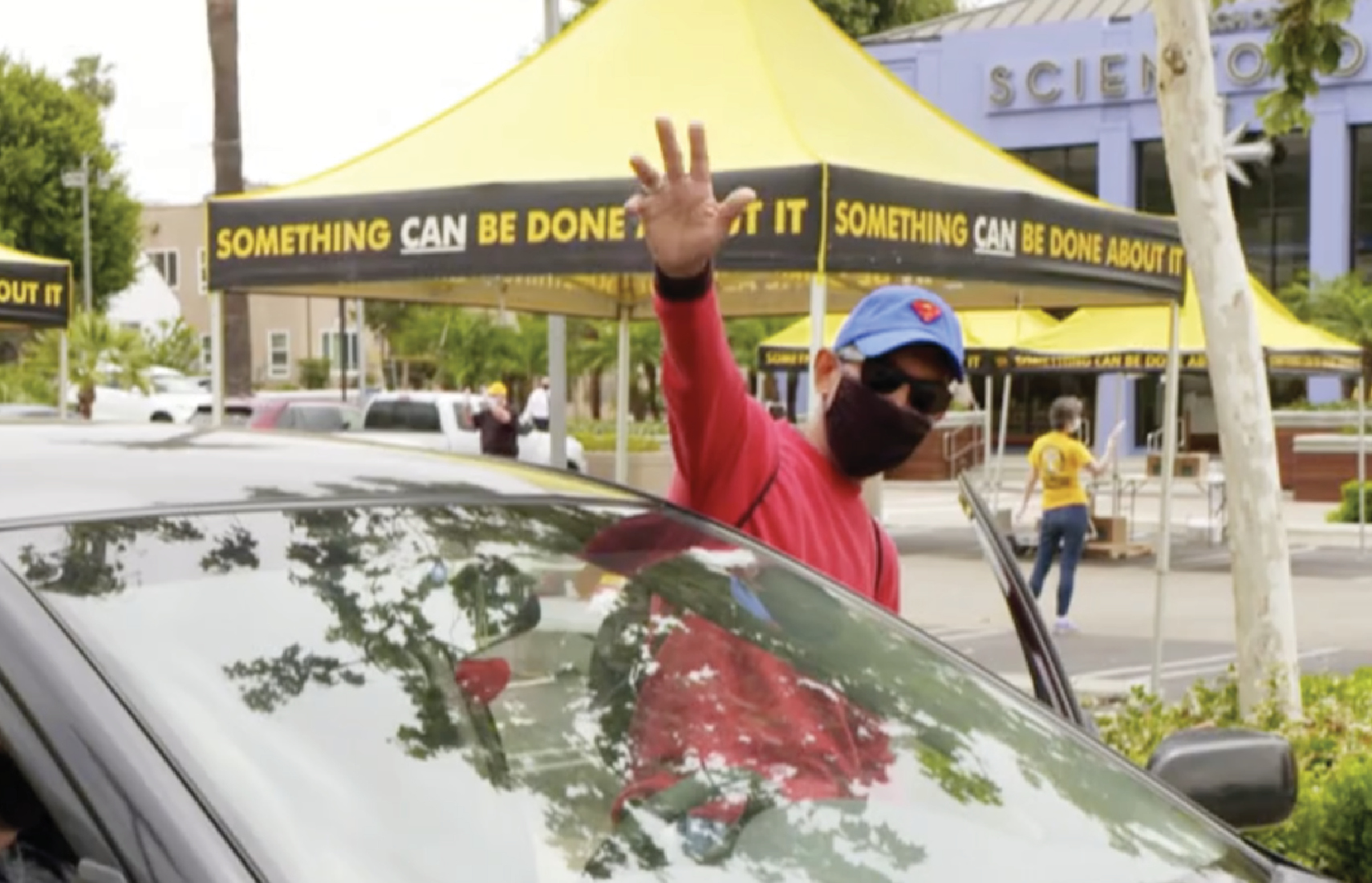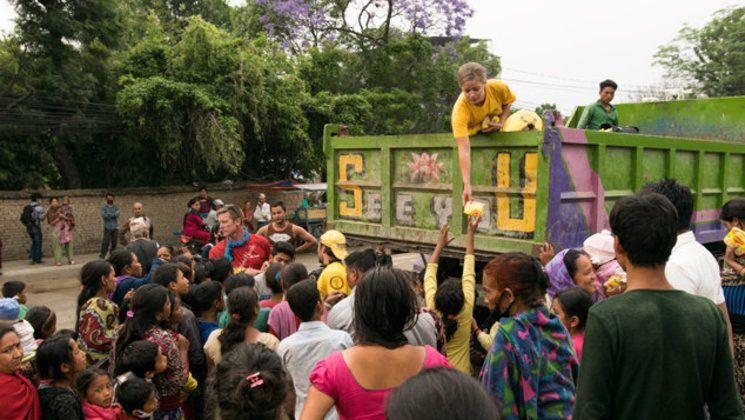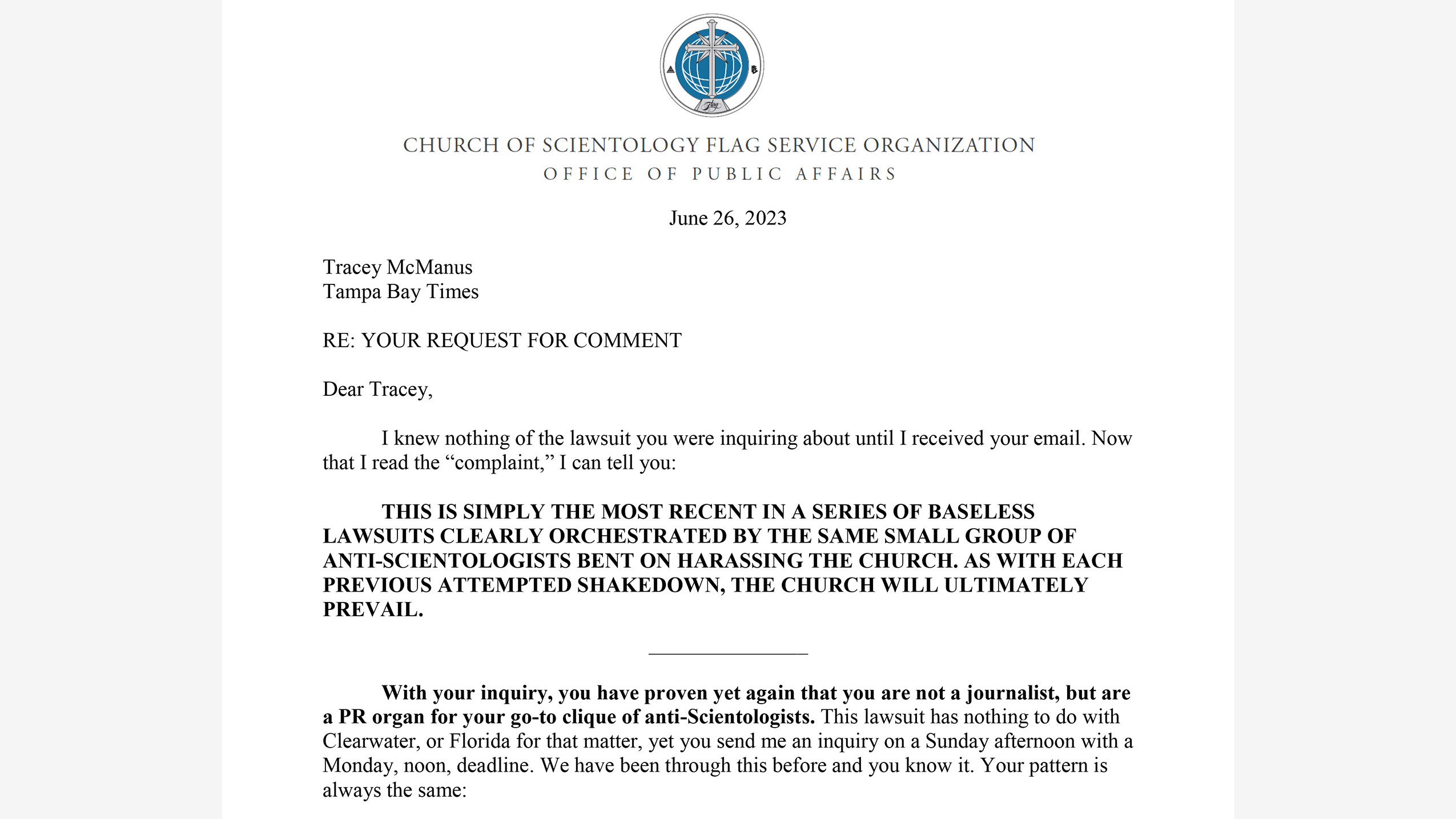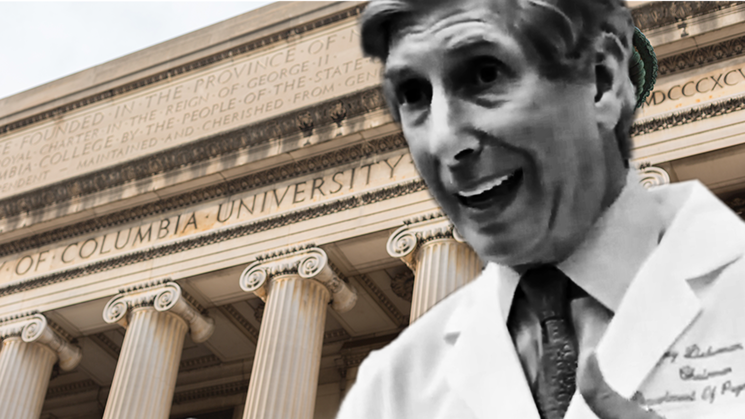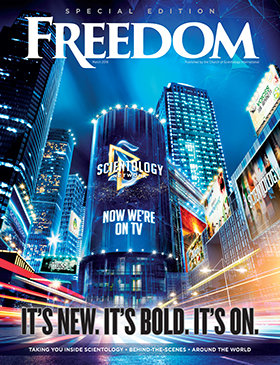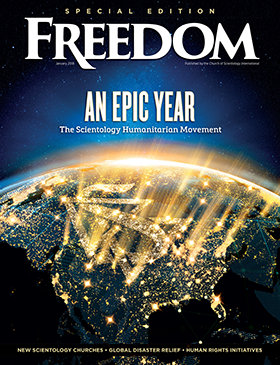Los Angeles Food Drive Continues Each Week
The Saturday lifeline for those struggling to put food on the table is one positive development for L.A. to come from the pandemic.
Like clockwork, it happens every Saturday for those in need, those between jobs, or those simply struggling to care for their family.
They usually come by car, sometimes alone, sometimes with several family members, to where they know their essential needs will be met—the Church of Scientology.
They come for the bread of life, as well as peanut butter to go with that bread, milk, vegetables, fresh fruit, cheese, tissues, toiletries and much, much more.
While the Church in Los Angeles has conducted a myriad of charitable drives throughout its seven decades in this city, it established the weekly L.A. Food Drive when residents were struggling through the depths of Covid-19—many out of work, quarantined, or unable or too concerned to go to work, or even grocery shopping. Since then, the drive has helped some 35,000 families.
Starting in 2020, residents have arrived on Saturday mornings for the weekly L.A. Food Drive at the Church’s complex on Sunset Boulevard. While the majority arrive in cars, some come by bicycle or even on foot. But all come to share in the charity of the Church, scores of sponsors and untold numbers of donors who make the drive happen for those in need.
While the Church in Los Angeles has conducted a myriad of charitable drives throughout its seven decades in this city, it established the weekly L.A. Food Drive when residents were struggling through the depths of Covid-19—many out of work, quarantined, or unable or too concerned to go to work, or even grocery shopping.
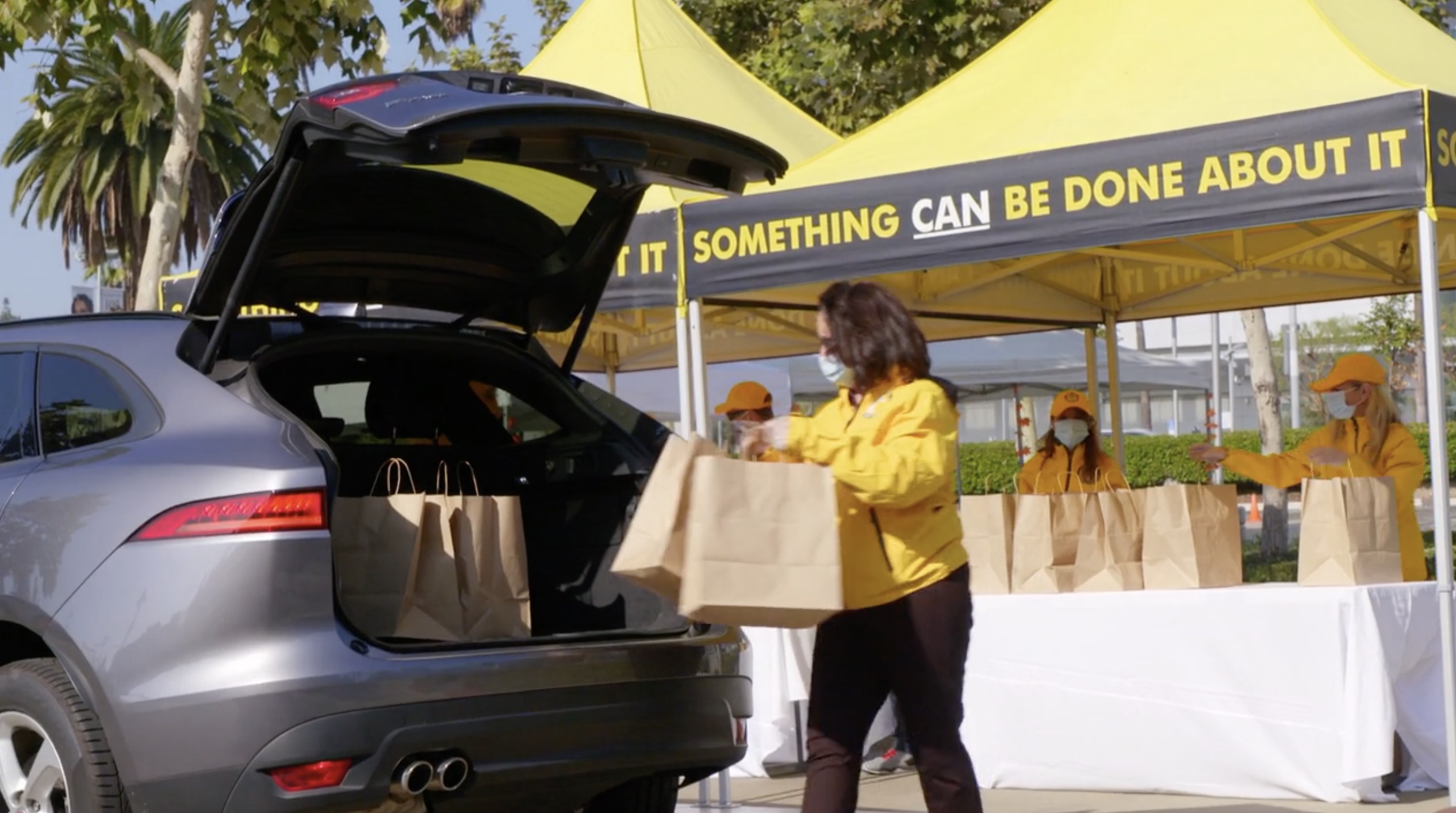
Since then, the drive has helped some 35,000 families.
Angelenos show up every Saturday, rain or shine, said Betsy Davis, coordinator of the L.A. Food Drive. And though it started out slowly, when relatively few residents were venturing out, she said, the response increased through word of mouth.
“There are more people now that need help than did during COVID,” Davis observes, citing rising prices and an increase in living expenses, as compared to during the pandemic. “At that time, there was monetary support provided by the government, and many free resources that are no longer available.”
Indeed, the food and other supplies of the weekly drive do not come from any government assistance program, but from a growing network of individuals, businesses and organizations who want to help—from neighborhood shops to franchises, farmers and philanthropic agencies. Davis mentioned Helping Hands Society of L.A., which delivers multiple pallets of food for the drive.
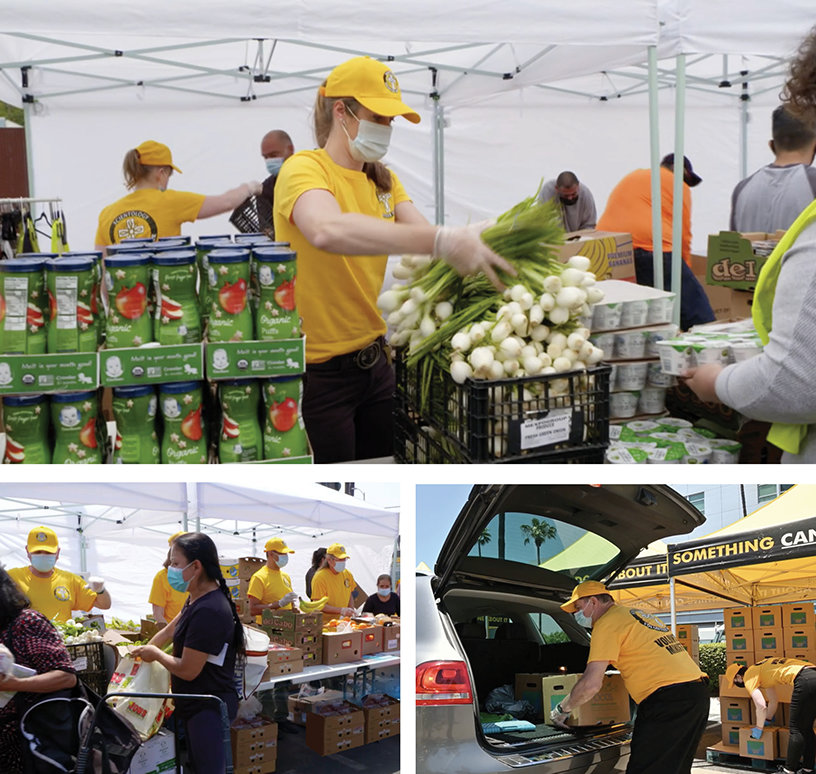
The Society was connected with the weekly food drive through Marine Kalamdaryan, director of the Los Angeles Community Alliance—“another local nonprofit that’s doing incredible work to help the community,” said Davis. The Society had previously been conducting regular food distributions but had to stop when its landlord prohibited the handouts in the parking lot.
“[Kalamdaryan] asked if we could host them. I said yes of course! They’ve been a regular food supplier ever since,” Davis said, “And they are amazing.”
The food drives have also developed another facet that
continues to grow for the good of Los Angeles. “We are now part of a network of
incredible nonprofits led by women who are dedicated to helping the community,”
Davis said.
